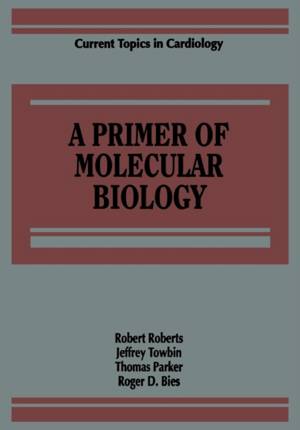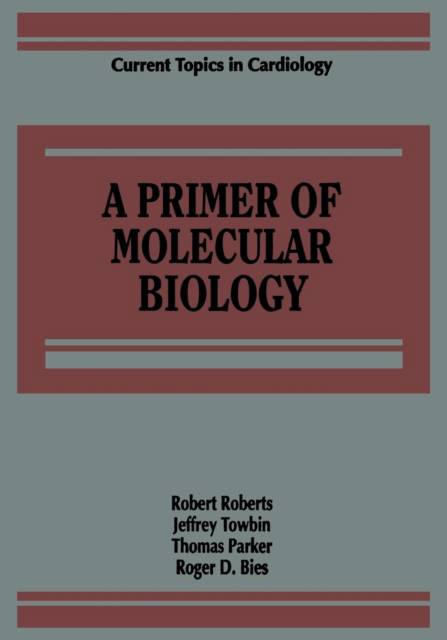
- Afhalen na 1 uur in een winkel met voorraad
- Gratis thuislevering in België vanaf € 30
- Ruim aanbod met 7 miljoen producten
- Afhalen na 1 uur in een winkel met voorraad
- Gratis thuislevering in België vanaf € 30
- Ruim aanbod met 7 miljoen producten
Zoeken
€ 83,95
+ 167 punten
Omschrijving
In arecent plenary address to the American College of Cardiology, Dr. Leroy Hood stated that he expected the application of the techniques of recombinant DNA and molecular biology to medicine would advance the field more in the next twenty years than all of the progress that has been made in the past 2,000 years. Cardiology, as a discipline, has been one of the last to embrace the techniques of molecular biology, yet the advances made in the past five years have indeed been dramatic. Throm- bolytic therapy, introduced with a bang through the use of recombinant tissue plasminogen activator (rt-PA), is now part of the routine arma- mentarium in the treatment of patients with acute myocardial infarction. Tissue plasminogen activator was the first drug made with the use of recombinant DNA techniques to be used in cardiology and was approved by the Food and Drug Administration (FDA) in 1989. In the short time since then, five other drugs made by these techniques have been added to the treatment of patients with ischemic heart disease-hirudin, su- peroxide dismutase, urokinase, prourokinase, and multiple mutant forms of rt-PA. The FDA has approved fewer than 100 drugs that are made by recombinant DNA techniques, but estimates that by the year 2000 over 50% of all drugs will be made by these techniques.
Specificaties
Betrokkenen
- Auteur(s):
- Uitgeverij:
Inhoud
- Aantal bladzijden:
- 202
- Taal:
- Engels
- Reeks:
Eigenschappen
- Productcode (EAN):
- 9781468466829
- Verschijningsdatum:
- 11/04/2013
- Uitvoering:
- Paperback
- Formaat:
- Trade paperback (VS)
- Afmetingen:
- 178 mm x 254 mm
- Gewicht:
- 390 g

Alleen bij Standaard Boekhandel
+ 167 punten op je klantenkaart van Standaard Boekhandel
Beoordelingen
We publiceren alleen reviews die voldoen aan de voorwaarden voor reviews. Bekijk onze voorwaarden voor reviews.







